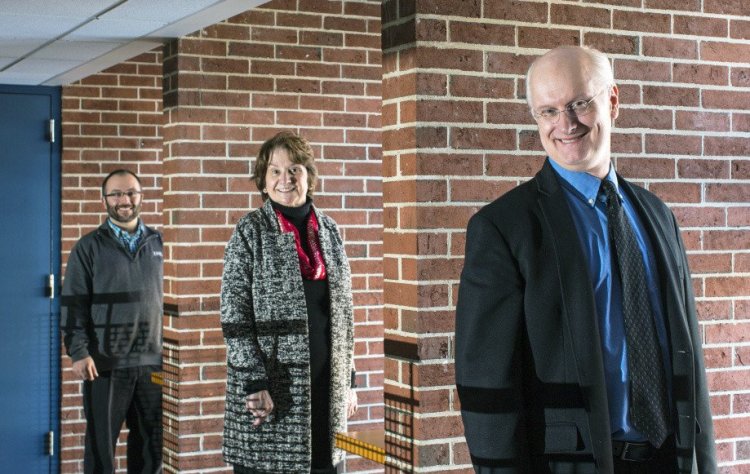The University of New England is hoping to fast-boot Maine’s employment growth in technical fields such as computer science by creating a series of accelerated courses with the help of major employers.
This week, the university’s Portland campus announced the launch of the UNE Academy of Digital Sciences, which will offer five eight-week courses beginning in January. The courses, referred to as programs, will be conducted primarily online and will cover subjects including software development, data analysis and project management. All five programs will be offered simultaneously every eight weeks.
The academy’s creator, UNE Director of Computational Digital Programs Jay Collier, said Maine does not have enough talent in the workforce to meet employers’ needs for technical jobs such as computer programmers, Web developers and database managers. He said the academy offers a way for students, recent graduates and workers employed in other fields to gain basic skills in those high-demand technical disciplines that could lead them to new careers or enhance their current ones.
“If you’re a 20-year-old or a 40-year-old, at the beginning of your career or seeking to advance your career, this is for you,” said Collier, who is former head of Educate Maine’s Project>Login program, which also focuses on tech-industry workforce development.
Each self-paced program offers about 60 hours of instruction, including online course work, live seminars and meetings with mentors from the private sector. There is an introductory program that covers a broad range of technical fields, and four specialized programs covering the fundamentals of application development and programming, user interaction and interfaces, data analysis and project management.
Collier said each accelerated program covers as much material on its subject as a typical year of college. The all-inclusive price to enroll in each program is $1,450. No financial aid is currently available, but Collier said UNE is working to change that.
Graduates from each program will receive a certificate that will be recognized by many participating Maine employers including WEX Inc., Idexx Laboratories, Unum Group, MaineHealth and L.L. Bean, according to UNE. While a certificate is not a substitute for an associate or bachelor’s degree, Collier said those who excel at the academy will be qualified for paid internships that often lead to permanent jobs in technology.
“There are no guarantees of any kind,” he said, “(but) there are many people who do not know how they would be welcomed into the field. We’re trying to help people who don’t see themselves in the field because the demand is there.”
Collier said he is confident that the academy will be teaching exactly the technical skills Maine employers are looking for because it was developed with input from major employers in the state.
Some employers said they see the academy as a way to flush out those Mainers who have the potential to take on the next generation of computer and technology jobs in the state – even though they might not know it.
“We look to hire and retain talented employees and interns who possess critical thinking skills, a burning desire to solve problems, and who will be energized working in teams on meaningful projects,” said Jim Smith, chief information officer of the Maine Office of Information Technology. “In Maine we know we have this talent just waiting for programs like the UNE Academy of Digital Sciences to help them reach their fullest potential – to be career ready.”
Stephen Crowley, senior vice president and chief information officer at WEX, said the programs are needed because there are virtually no job-seeking tech workers in Maine with the needed skills.
“Unemployment is zero,” Crowley said. “We just can’t find enough qualified people.”
According to data compiled by the Maine Department of Labor in its 2024 jobs outlook report, the demand for computer and math-related professional jobs will grow by nearly 9 percent from 2014 to 2024. The 2015 average hourly wage for those jobs was $33.90.
Using the expanded definition of STEM (science, technology, engineering and math) jobs, the demand is expected to grow 17 percent over the same period, with a 2015 hourly wage comparable to computer-related jobs.
More information about the UNE Academy of Digital Sciences is available at une.edu/academy.
Send questions/comments to the editors.




Comments are no longer available on this story